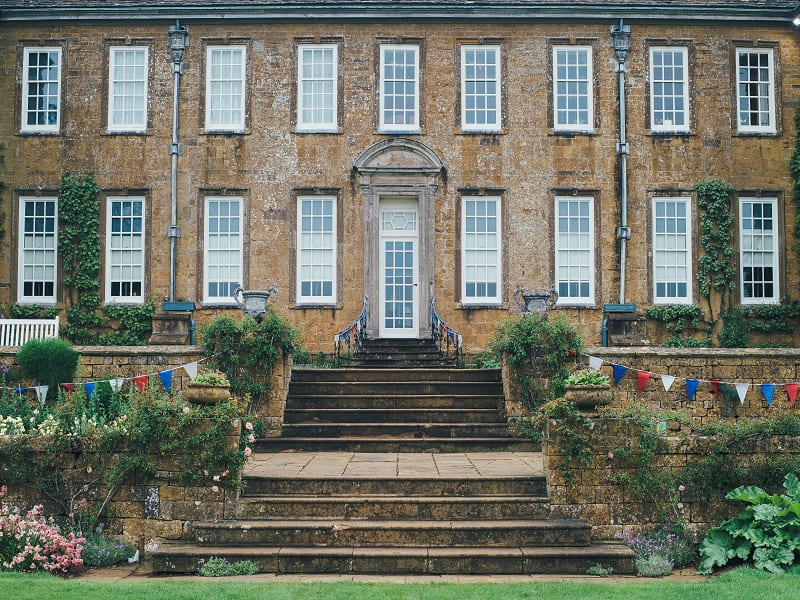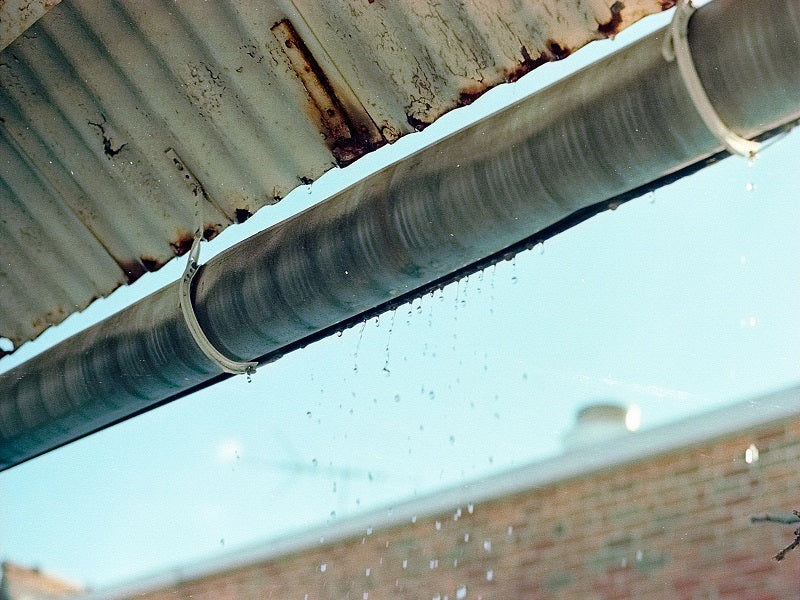How Long Can a House Go Without Gutters?
Discover the consequences of no gutters on house. Learn why gutters are essential for protecting your property and how they can extend your home's lifespan.
Rain that falls on the roof of a house is rerouted down a downpipe and out to the drainage system, away from the house. This prevents the ground around the home from getting soggy and perhaps being absorbed into the foundation, causing serious damage to the building and nearby structures.
Rain falls down the roofs without gutters, producing a waterfall impression. If the roof has a large overhang, this may not be an issue for the foundation, but accessing and exiting the house without getting wet might be problematic, especially during severe rains. In this article we will go over what happens if your house does not have gutters. So, keep reading!
What Are Gutters?
A gutter is a pipe or trough on the sting of a roof that diverts water away from a house or structure.
They safeguard your home from rotting, overflowing, and problem invasions, among other hazards, by collecting and directing water away from your property. Gutter guards are designed to keep rubbish from entering your home's waterways.
Importance Of Gutters
Gutters are vital in preventing water damage to your home's foundation as well as erosion, floods, and other water-related concerns. Rain gutters assist in guiding water away from the home, lowering the likelihood of water seeping into the foundation or basement and creating cracks, mildew development, and other costly damage. Furthermore, gutters protect your landscape and external walls from water damage, which can result in peeling paint, wood rot, and other unpleasant concerns. Overall, investing in a quality rain gutter system is a wise choice for any homeowner looking to safeguard their investment and avoid costly repairs in the future.
Why Aren't There Gutters On Some Houses?
Gutters are an important feature of a roofing system because they collect and guide rainwater away from a house's foundation and walls. They are installed in the majority of residences; however, a minority do not.
Although gutters are utilized in the majority of homes, they are not required. There are various reasons why homeowners prefer not to have gutters. It might be due to the look of gutters, their maintenance costs, or just because homeowners wish to try something new and different.
What Happens With Your House Without Gutters?
Here's what happens when your house doesn't have gutters.
l Erosion Of The Foundation
Home plots are often sloped to deflect water away from the foundation. Even if a site is properly graded, water can still pool around the foundation in the absence of a gutter system. Gutters move moisture away from homes, preventing erosion and foundation damage. To properly regulate runoff, gutter systems can be paired with splash blocks, gravel, and drainage pipes.
l Drainage Of Water
Poor drainage on a property is the most prevalent source of damage, which is mainly caused by gutter difficulties (or no gutters) or inappropriate property grading. Grading refers to the landscaping and soil elevation surrounding the property. It is critical to ensure that water is constantly diverted away from the house.
If you are still considering whether to have gutters placed on your property, keep in mind the impact of having no gutters on home on the foundation and stability of your home.
l Dwellers in the Attic
Squirrels can erode through fascia. What has this got to do with gutters? A lot, in fact. Gutters typically hang from the fascia board, making a physical barrier between the squirrel and the source of entrance. However, without gutters, water and the weather may gradually destroy your fascia, soffit, and trim. As a result, squirrels will be more likely to chew through such surfaces in order to obtain access. They require only 2.5 inches of room to penetrate on average. Without that barrier, rats may take up home in your attic.
l Washout Gardens And Landscaping
Many houses include landscaping that adds curb appeal and assists with erosion control. Water can collect in the absence of drains, oversaturating plant roots, and eroding the soil. Flowers, bushes, and other vegetation surrounding the foundation will eventually perish. Gutters keep the garden appealing and preserve the foundation by preventing over-watering and erosion.
l Flooding in the Basement
The soil adjacent to the basement walls might get saturated, putting considerable strain on the outside walls. The increased pressure will ultimately create fractures and other damage, allowing water to enter the basement. Mold development is encouraged by sluggish degradation, and basement flooding can result in costly repairs.
l Damaged Siding
Rainwater may carry leaves, debris, and asphalt particles down the siding, causing unsightly discoloration. Stained and discolored siding gives your property a filthy and dismal appearance. Rainwater may destroy your siding, especially if it is built of wood. Rotten siding provides entry points for vermin into your home. Water accumulation might compromise the structural integrity of your property, necessitating costly repairs.
l Mold growth
Mold can grow in water that enters your home owing to a lack of roof gutters. It is preferable to address the issue before mold cleanup is required. Water may leak through your basement windows, damage the foundation, and slide through these openings if you don't have gutters installed. Install gutters to protect your home against leaks that lead to mold development if you want to prevent this kind of issue.
How Long Can a House Survive Without Gutters?
Nobody knows exactly how long a home can go without a gutter. However, it is dependent on a number of factors, including;
1. Weather patterns
Many homeowners like discussing the weather. However, most people dislike talking about how the weather might harm their home without a gutter. Here are some ways in which weather can cause harm to your home in the absence of gutters.
l Wind
Tornadoes and hurricanes have extremely intense winds that may scrape shingles off roofs. Even mild wind gusts can cause enormous tree branches to break and fall onto homes, which causes the accumulation of debris on roofs. So, the water does not flow properly, causing roof leaks and damaging the house.
l Snow
A little dusting of snow normally causes no concerns. However, numerous feet of snow can overload physical support systems, causing bending or holes in roofs. A similar impact may be observed on overhanging tree limbs, which can fall on the roof and cause more damage.
If your house (without gutters) is exposed to all of the following weather patterns, it may survive less time than those with gutters.
2. Design Of The House
How long a house will go without gutters also depends on the design of the house. If your home is structured in such a manner that it has a good system for directing water away from its base, it may last longer.
Final Thoughts
In short, a house without gutters can cause a variety of problems, including foundation erosion and poor drainage, probable basement flooding, damaged siding, and even bug infestations. Mold development can also be a problem when water enters the home. To avoid these issues, proper gutter care is required, which includes frequent cleaning and the use of gutter helmets or screens. While the exact life span for a house with no gutters may vary based on factors such as weather patterns and house design, adding gutters is a sensible investment to safeguard and extend the life of your property.




Leave a comment
This site is protected by hCaptcha and the hCaptcha Privacy Policy and Terms of Service apply.